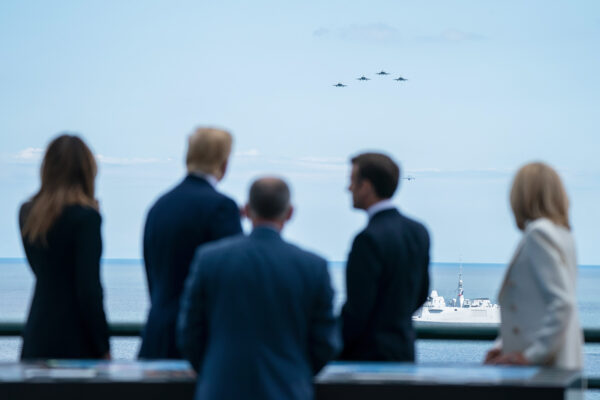
Defenders of Donald Trump’s foreign policy confuse his lack of sentimentality for realism. In fact, his disinterest in America’s decades-old alliances in Europe and the Far East defies a century of geopolitical wisdom.
Strategists from Halford Mackinder to Zbigniew Brzezinski understood that only a united Eurasia, which has two-thirds of the world’s population and resources, can pose a threat to the Americas, while Robert Kagan and Henry Kissinger recently warned, in The Jungle Grows Back (2018) and World Order (2014), respectively, that the long peace since World War II has owed as much to American “hard” power as to the world’s belief that Americans will, by and large, do the right thing.
These assumptions were widely shared in Washington — until Trump became president.
Rimlands
Trump claims to be clear-eyed about China, yet he appears oblivious to the most serious long-term challenge it poses and has thrown a proven method of containing Eurasian land power out of the window.
Sino-Russian rapprochement and China’s Belt and Road Initiative are the stuff of Mackinder’s nightmares. An English geographer and the father of geopolitics, Mackinder warned a century ago that if a single power ever gained control of the Eurasian heartland, it could control the world.
His worry was that railroads would allow the czar to bring the bulk of the world’s people and resources under Russia’s sway. Swap Russia for China, and add 5G networks to railways, and the threat doesn’t look so different today.
America used to take Mackinder’s advice to heart. When Germany conquered Eastern Europe in the First and Second World Wars, the United States intervened on the side of the Western Allies. When the Soviet Union emerged from the last war with an empire stretching as far west as the Elbe, George Kennan took inspiration from Nicholas Spykman and Alfred Mahan, who had expanded on Mackinder’s thesis to suggest that Eurasian land power could be contained around the edges in what Spykman called the “Rimlands” and Mahan the “debatable zone”. Kennan turned this into a policy of containment. The Soviet empire would be surrounded by American allies.
In the west was NATO, including Denmark, Iceland, Norway, Greece and Turkey to block Russia’s access to the Atlantic Ocean and Mediterranean Sea.
America attempted a similar alliance, the Baghdad Pact, in the Middle East to deny the Soviets the region’s oil supplies and access to the Indian Ocean.
In the Far East, Japan was converted from enemy into ally and America went to war in Korea and Vietnam to block the spread of communism. Richard Nixon and Kissinger exploited the Sino-Soviet split to isolate Moscow.
Bully
Most countries in the “Rimlands” didn’t just accept American tutelage; they welcomed it. By and large, they trusted the United States not to abuse its power.
That was why the Soviets were so keen to point out (or invent) American hypocrisies, and why today’s Russia and other revisionist powers, from China to Iran, do the same.
It is also why Trump’s America First policy is self-defeating.
Legitimacy without power is a paper tiger: the League of Nations, the UN, to some extent the EU.
But power without legitimacy is a bully.
Trump doesn’t believe in American exceptionalism. He doesn’t believe in a “global community” of nations. To him, international relations are an arena in which states compete; the very war of all against all America tried to end with what Brzezinski called its “benign hegemony”.
Good will
To be fair, Trump isn’t the first American president to squander the world’s good will.
George W. Bush went over the UN’s head and ignored America’s European allies to go war in Iraq. The consequences of that mistake still reverberate. One can draw a direct line from the Iraq War to the Arab Spring to the Islamic State to the war in Syria. More fundamentally, it showed America was willing to sidestep the system it had itself created to replace the law of the jungle.
Barack Obama repaired some of the damage by insisting on a UN mandate and the support of allies to intervene in Libya, negotiating the Iran nuclear deal and the Trans Pacific Partnership, which did more than open Asian and South American markets to American goods; it included environmental protections, enforced copyrights and patents, prohibited child and forced labor and guaranteed union rights. Crucially, it would have put pressure on China to do the same.
Trump tore up Obama’s treaties. A good deal to him means America “wins” and the other side “loses”.
His is a far cry from the America that gave Europe the Marshall Plan, airlifted supplies into West Berlin, fought for freedom in Korea and paid for the bulk of the defense of NATO and Japan.
The price of Trump’s shortsightedness could be the return of Mackinder’s world, where liberal, prosperous, but vulnerable nations in the Rimlands struggle to keep Eurasian autocracy at bay, and America looks the other way.
